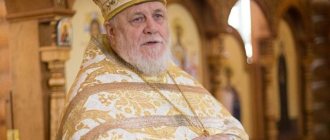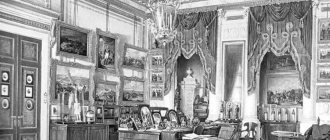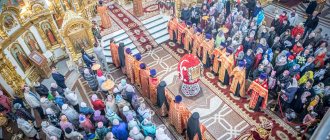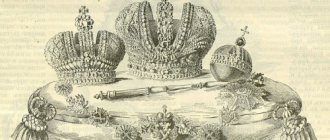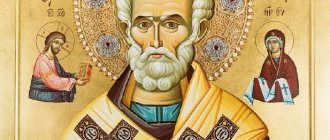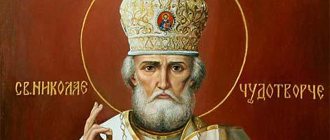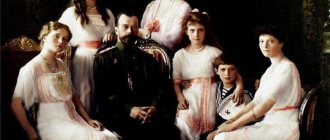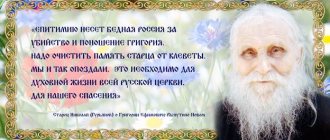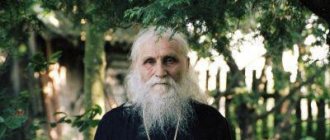| Pestov N.E. |
Nikolai Evgrafovich Pestov
(1892-1982), religious writer, professor, Doctor of Chemical Sciences. Born on August 4, 1892 in Nizhny Novgorod. His father came from a bourgeoisie, his mother from a merchant family. In 1911, he entered the chemistry department of the Imperial Moscow Higher Technical School (now Bauman Moscow Higher Technical School), where he studied from 1911 to 1914 and from 1922 to 1924. The First World War found him in his 4th year. Nikolai voluntarily entered the army. Then in his diary he wrote: “... many years later I see in this the Providence of God, which took me out of the walls of the school for 8 years in order to return me to it again, but as a completely different person. Saul went out, Paul returned..."
After graduating from military school, Nikolai Pestov was promoted to warrant officer and assigned to an infantry reserve battalion. In mid-August 1915, he was transferred to Riga to an artillery regiment to organize anti-chemical defense. At the front he received an auditory concussion, the consequences of which remained for life. Awarded the Order of St. Stanislaus, III degree, and the Order of St. Anne, III degree. In the documents of the regiment, Pestov was certified as an “outstanding officer.”
After the February Revolution, Pestov was elected a member of the Regimental Committee, and then to the executive committee as the chairman of the regiment and at the same time a member of the Regimental Court;
in August 1917 he was appointed regimental adjutant.. On November 16, 1917, having taken leave, he went home to Nizhny Novgorod, where after the change of government he worked in the civil service. In August 1918, together with other former officers, nobles and representatives of the bourgeoisie, he was arrested “in view of the possible action of counter-revolutionary White Guard elements” (forty people were shot). In November, when it became clear that the whites could not take over Nizhny Novgorod, he was released. All specialists of the old army were obliged to register and serve in those positions to which the Soviet government would place them. Pestov was sent to work in the bodies of Vsevobuch. Having no Christian faith, he joined the Communist Party in December 1918. After a successful report on the state of affairs in the Nizhny Novgorod Vsevobuch, he was left in Moscow to work in the Vsevobuch Directorate at the All-Russian Main Staff. At the same time, he was enrolled as a cadet in the Central Higher Courses of Vsevobuch, upon completion of which he was awarded the title of military commissar. In the spring of 1919, Nikolai Evgrafovich ended up on the Eastern Front in the Northern Group of Forces. In September 1919, he was awarded the rank of district military commissar and appointed the post of Head of the General Education Department of the Priural Military District. “I moved to Sverdlovsk for permanent residence
,” writes N.E.
Pestov in his memoirs. - ... There I lived through two years - the most difficult in my life ... Remembering all this evil that I committed in those years is the hardest thing for me ... This whole nightmare ... (then two lines are illegible) ... the Karamazov dirt ... (then two phrases are crossed out) ... All this happened in the absence of my Christian faith.”
From the memoirs of his wife:
“During the years of the civil war, Nikolai Evgrafovich repeatedly had to meet with such people as Frunze, Vatsetis, Tukhachevsky, Shorin, Gai, Kamenev, Tsuryupa, etc. ... During the period of Stalin’s personality cult, almost all military leaders from the civil war were among the “enemies of the people” : If Nikolai Evgrafovich had remained to serve in the army, he would not have lived to this day...”
In July 1921, Nikolai Evgrafovich resigned from the Red Army. The reason for leaving military service was the enormous spiritual shock that happened to him during that period. The gradual stabilization of the situation in Russia allowed him to demobilize and return to Moscow to complete his education.
In the late autumn of 1921, he attended Martsinkovsky’s lecture “Did Christ Live?” for students of Moscow Higher Technical University and other universities.
“It was the first time I heard such deep and meaningful words about Christ and the Gospel. A feeling of deep remorse for what I had done was born in my soul. Suddenly, as if scales had fallen from my eyes, in the simple words of the Gospel that the lecturer read, I heard the answer to the questions that were tormenting me. This evening became a turning point... I left the lecture a Christian. My new enlightened life has begun. New forces, unknown sensations burst into the soul. No longer sorrow and melancholy, but indescribable joy filled the soul, giving strength to live, work, study, he wrote in his diary. “The path of the Gospel and the implementation of Christ’s commandments in life is now my path, my life!”
New convictions did not allow one to remain in the party; he destroyed his party card, did not pass the next registration and was expelled from the ranks of the RCP (b). In Moscow, Nikolai Pestov met the organizers of the Christian Circle at the Moscow Higher Technical School and began to help organize lectures on spiritual topics. Martsinkovsky very soon noticed Pestov and contributed to his activities in the Christian Student Circle. In 1921, Pestov took part in the fight against famine and typhus epidemic in Saratov, where he also visited communities of Christian students. By the end of the summer of 1922, Pestov returned to Moscow, was reinstated at the Moscow Higher Technical School and continued his studies, attending meetings of the Christian Student Circle in his free time. In 1923, Martsinkovsky was informed by the GPU that he was being sent abroad for his religious preaching among students.
In 1923, the wedding of Nikolai Evgrafovich and Zoya Veniaminovna, whom he met in a Christian circle, took place. In 1925, Pestov entered service at the Moscow Higher Technical School as a researcher at the department of mineral fertilizer technology.
After Lenin's death, the authorities' attitude towards Christian students changed dramatically. It was forbidden to hold religious and philosophical meetings, religious circles and societies were closed. The Christian Student Circle in Moscow was also liquidated by the authorities, the house was taken away, members of the circle were subjected to all kinds of repression, searches, arrests, and exiles took place. Pestov went to prison, first to Lubyanka, then to Butyrka. Within two days, the entire composition of the Christian Student Circle was arrested. They slept on bunks with criminals. Members of the Theosophical student circle were also sitting there. There was information that the circle members were saved from deportation by N.K. Krupskaya. Instead of deportation, they were sentenced to 40 days of arrest and separated from the criminals into a special cell, where they held debates with Theosophists on religious and philosophical topics. In prison, Pestov met a parishioner of the Church of St. Nicholas on Maroseyka (St. Nicholas Church in Klenniki). The rector of this church was the elder Father Alexy Mechev, at that time already an old and sick man. After his death, spiritual leadership in the parish passed to his son, Fr. Sergius Mechev.
From Pestov’s diary:
“Spiritual life in Russia at that time was very complex and varied. The Orthodox Church was torn apart by schisms. There were several major factions that I found difficult to understand as a young Christian. Most of the churches in Moscow were in the hands of renovationists, headed by Alexander Vvedensky (later the renovationist metropolitan). At that time, I did not yet imagine the difference that existed between the renovationists and the “Tikhon’s Church” and visited both churches.”
Returning from prison, Pestov stopped visiting renovationist churches and became a permanent parishioner of the Maroseya Church and the spiritual son of Fr. Sergius Mecheva. With the blessing of his spiritual father, Pestov in 1926 made a trip to Sarov and Diveevo, where monasteries still operated.
Two sons and a daughter grew up in the Pestov family; Nikolai Evgrafovich paid a lot of attention to their upbringing, fighting for their souls, as well as for his own. He never punished children strictly: “Where love operates, there is no need for severity.”
Pestov carried out extensive scientific and pedagogical activities: he taught at universities, lectured at enterprises, and supervised graduate students; he owns about 160 research works, monographs and articles. In 1937, at a department meeting at the Mendeleev Institute, prof. Pestov N.E. opposed the conviction as an “enemy of the people” of a talented scientist who was then arrested by the GPU, and was expelled from the staff.
“Almost every day, more like nightly, I expected arrest. I believe that it was only through the prayers of my children, wife and spiritual father that I was not arrested at that time and remained alive.”
- he wrote later.
In the summer of 1939, he was invited to work at the Ordzhonikidze MIEI, and was accepted through a competition for the position of head of the department of chemical technology; from October 1943 he was deputy. director for scientific and educational work. After defending his doctoral dissertation in 1941 at the USSR Academy of Sciences, by order of the Higher Attestation Commission, he was approved for the degree of Doctor of Chemical Sciences.
Before the war, the churches were closed one after another, Pestov called the remaining ones “living church” and did not go to them. From the daughter’s memoirs: “At home, the icons were hidden in a closet and covered with curtains. But dad prayed for a long time, both in the morning and in the evening.”
They were afraid to go even to distant temples. Several churches where they used to go were closed, and priests who visited the Pestov house were arrested. The remaining priests hid and secretly performed services in the apartments of their spiritual children.
During the war, the Pestov family did not leave Moscow for evacuation. Due to bronchial asthma, Pestov was exempt from military conscription. Son Kolya was 17 years old; he was drafted only in September 1942. And in October 1943, a message was received that he had been killed in battle. Nikolai Evgrafovich poured out his grief by writing the book “In blessed memory of Kolyusha” or “Monument over the grave of his son.” He later renamed his work, calling it “Life for Eternity.”
The war years were years of intense scientific and pedagogical activity for N.E. Pestov. His works were published both in our country and abroad. Some aspects of his scientific work were directly related to the defense industry. Awards: in 1944 - Order of the Red Banner of Labor; in 1946 - medal “For Valiant Labor in the Great Patriotic War”; in 1953, for long service and impeccable work among scientific workers in higher educational institutions of Moscow - the Order of Lenin. By the end of the war years, Nikolai Evgrafovich stopped hiding his convictions, went to church again, no longer afraid to meet his colleagues or students there.
The first works on theology were written by Pestov in the late 50s. These were excerpts and quotes from the holy fathers and teachers of the Church on various issues of Christian life, combined into two volumes entitled: “Paths to Perfect Joy.” In those same years, the first edition of the book about his son who died at the front was written, as well as the first edition of the book “Above the Apocalypse.”
In the last years of his career, Pestov said: “I ask the Lord to show me His Holy will. Isn’t it time for me to put aside chemistry and physics and devote the rest of my days to the Lord?”
The Lord indicated His will by the following set of circumstances. During these times (60s), Pestov held the position of deputy. Director of the Engineering and Economic Institute for scientific affairs. An order came to carry out anti-religious work in all departments, order all professors and teachers to wedge atheistic propaganda into all subjects and provide a corresponding plan. Because Pestov refused to do all this; he was called into the office of the director of the institute and, in the presence of the secretary of the MIEI party bureau, was offered to retire. When, after his vacation, Pestov came to the institute in the fall to apply for retirement, he was told that he had already been expelled by order. Of course, there were no ceremonial farewells.
“Since I retired, my library and all my work have finally transformed from chemical to theological,”
- Pestov writes in his memoirs. Nikolai Evgrafovich concentrated all his energy on his multi-volume dissertation “The Path to Perfect Joy” or, as he also called it, “The Experience of Building a Christian World Outlook” [1]. The author received many grateful reviews, including in 1977 from Patriarch Pimen.
“Let no one think that all these positive reviews from people dear to me feed my pride and vanity,
- Pestov wrote in the late 1970s.
“ I constantly remember the abyss of sin into which I fell over the last three years before turning to the Christian faith.
I sincerely repented of them and believe that the Lord, in His ineffable goodness, forgave me my sins, but the consciousness of my insignificance remained in me and will be with me until death...” From the memoirs of a grandson:
“...Prayer literally permeated his entire life. Nikolai Evgrafovich religiously visited the Church of God. He especially loved the early Liturgies on Sundays, for which he carefully prepared several days in advance and at which he constantly received Holy Communion. This great Sacrament gave him a new impulse to life, infused him with extraordinary energy, and made him a real ascetic. This was especially noticeable in the last years of his life. All-night vigils, akathists, Great Canon of St. Andrew of Crete, he usually read the services of Holy Week privately. Slowly, touchingly and with deep concentration, hours of these prayers passed in his room. ... We, the grandchildren, also took part in these prayers, reading the Trisagion, the Six Psalms and quietly singing along with our grandfather’s familiar irmos. But, undoubtedly, grandfather performed most of the prayers in private. His prayer was fiery, he was completely immersed in it, so that sometimes, accidentally entering the office, one could become a witness to this live conversation with God, devoid of any external effect. At these moments, grandfather usually did not notice those who entered, and we hastily left, carried away into I have an incomprehensible feeling of guilt.”
The last year has been painful. Nikolai Evgrafovich realized that he would soon die and was preparing for this great moment. In the summer of 1981, he asked him to perform unction. During the Sacrament, he prayed fervently; After the unction, the disease visibly subsided. In the last months before his death, he almost did not get up, received Holy Communion weekly and remained in constant prayer. After Christmas 1982, his strength finally left him. On the morning of January 11, he fell into unconsciousness and, without regaining consciousness, died on the night of January 14, 1982, on the feast of the Circumcision of the Lord and St. Basil the Great, whom he greatly revered. Nikolai Evgrafovich Pestov was buried in the cemetery at the Smolensk-St. Nicholas Church in the village of Grebnevo, Moscow region.
Years of study and formation
At the age of 11, Pestov began studying at a real school, where he studied for 8 years and upon completion received the right to enter a university. The temperamental young man was distinguished by his comprehensive interests. The young man was interested in butterflies and the basics of Esperanto, chemical experiments and participation in the school theater.
Considering himself an atheist, the young man rushed about in search of an answer to the questions that tormented him about the life and death of Christ. After graduating from college, Pestov becomes a student at the Faculty of Chemistry at the Imperial Moscow Higher Technical School, lives with his godfather in Moscow, and leads the usual social life for students.
Proceedings[edit | edit code]
- Modern Practice of Orthodox Piety
- Renewal of the human soul. (Transformation of the “external” and “spiritual” person into the “internal” and “spiritual” person).
- Fundamentals of the Orthodox faith. M.: Eleon, 1999.
- What is the obedience of an Orthodox Christian?
- Christian marriage. The essence of the purpose of marriage.
- Christian marriage. Choosing a spouse.
- Christian marriage. Married life.
- Orthodox education of children.
- Life for eternity or a monument to the grave of a son.
First World War and Revolution
The year 1914 brought its own adjustments to the life of the young man, who, out of patriotic motives, changed his technical school to a military one. Pestov graduated with the rank of warrant officer, a specialist in chemical defense.
While serving at the front, in 1916, Second Lieutenant Pestov got married. Rufina Dyachkova was the daughter of a sworn attorney. For military merits, a tactful and brave officer is awarded the Order of St. Stanislav and St. Anne, third degree.
After the revolution, Nikolai Evgrafovich Pestov, whose biography began in Nizhny Novgorod, returned to his native land and worked in the city food committee.
Due to fears that the former officer would support the advancing White Guards, Pestov and his father-in-law were arrested on August 13, 1918, his father-in-law was shot, and Nikolai managed to be released on November 2 of the same year.
In 1918-1919, a former officer of the old guard and his wife joined the ranks of the Communist Party. After graduating from the Central Higher Courses of General Education, Military Commissar Pestov, as part of the Northern Group of the Eastern Front, goes to fight the troops of Admiral Kolchak, his faithful wife is always nearby.
After the defeat of Kolchak in 1919, the district military commissar became the head of the General Education department at the Priural Military District. Familiar with Trotsky, Kamenev, Tukhachevsky, the military commissar, willy-nilly, becomes a witness and accomplice in the cleansing of the country from “enemies of the people,” which he later writes about as an evil and a nightmare.
The Turning Point and Knowing Christ
It’s hard to believe, according to Nikolai Pestov himself, in early March 1921, Jesus Christ appeared to him in a dream. In the dream, everyone present, and among them the commissar’s sisters, try not to notice Christ, who was followed by their uncle. Nikolai did not have time to look away, and he was pierced by the kindness and severity of Christ’s gaze.
This dream changed Pestov’s worldview, the once commissar left the army, this became the reason for his divorce from Rufina, they never meet again in their lives. The seal of the “chekist” separated Pestov from his relatives; few people make friends with him. The thirst for knowledge of Christ led the once atheist to a Christian meeting in 1921, where he listened to the sermon “Did Christ Live?”
An excerpt characterizing Pestov, Nikolai Evgrafovich
Sonya burst into tears hysterically, answered through her sobs that she would do everything, that she was ready for anything, but she did not make a direct promise and in her soul could not decide on what was demanded of her. She had to sacrifice herself for the happiness of the family that fed and raised her. Sacrificing herself for the happiness of others was Sonya's habit. Her position in the house was such that only on the path of sacrifice could she show her virtues, and she was accustomed and loved to sacrifice herself. But first, in all acts of self-sacrifice, she joyfully realized that by sacrificing herself, she thereby raised her worth in the eyes of herself and others and became more worthy of Nicolas, whom she loved most in life; but now her sacrifice had to consist in giving up what for her constituted the entire reward of the sacrifice, the entire meaning of life. And for the first time in her life, she felt bitterness towards those people who had benefited her in order to torture her more painfully; I felt envy of Natasha, who had never experienced anything like this, never needed sacrifices and forced others to sacrifice herself and yet was loved by everyone. And for the first time, Sonya felt how, out of her quiet, pure love for Nicolas, a passionate feeling suddenly began to grow, which stood above rules, virtue, and religion; and under the influence of this feeling, Sonya involuntarily, learned by her dependent life of secrecy, answered the countess in general, vague words, avoided conversations with her and decided to wait for a meeting with Nikolai so that in this meeting she would not free her, but, on the contrary, forever bind herself to him . The troubles and horror of the last days of the Rostovs’ stay in Moscow drowned out the dark thoughts that were weighing on her. She was glad to find salvation from them in practical activities. But when she learned about the presence of Prince Andrei in their house, despite all the sincere pity that she felt for him and Natasha, a joyful and superstitious feeling that God did not want her to be separated from Nicolas overtook her. She knew that Natasha loved one Prince Andrei and did not stop loving him. She knew that now, brought together in such terrible conditions, they would love each other again and that then Nicholas, due to the kinship that would be between them, would not be able to marry Princess Marya. Despite all the horror of everything that happened in the last days and during the first days of the journey, this feeling, this awareness of the intervention of providence in her personal affairs pleased Sonya. The Rostovs spent their first day on their trip at the Trinity Lavra. In the hotel of the Lavra, the Rostovs were allocated three large rooms, one of which was occupied by Prince Andrei. The wounded man was much better that day. Natasha sat with him. In the next room the Count and Countess sat, respectfully talking with the rector, who had visited their old acquaintances and investors. Sonya was sitting right there, and she was tormented by curiosity about what Prince Andrei and Natasha were talking about. She listened to the sounds of their voices from behind the door. The door of Prince Andrei's room opened. Natasha came out of there with an excited face and, not noticing the monk who stood up to meet her and grabbed the wide sleeve of his right hand, walked up to Sonya and took her hand. - Natasha, what are you doing? Come here,” said the Countess. Natasha came under the blessing, and the abbot advised to turn to God and his saint for help. Immediately after the abbot left, Nashata took her friend’s hand and walked with her into the empty room. - Sonya, right? will he be alive? - she said. – Sonya, how happy I am and how unhappy I am! Sonya, my dear, everything is as before. If only he were alive. He can’t... because, because... that... - And Natasha burst into tears. - So! I knew it! Thank God,” said Sonya. - He will be alive! Sonya was no less excited than her friend - both by her fear and grief, and by her personal thoughts that were not expressed to anyone. She, sobbing, kissed and consoled Natasha. “If only he were alive!” - she thought. After crying, talking and wiping away their tears, both friends approached Prince Andrei’s door. Natasha carefully opened the doors and looked into the room. Sonya stood next to her at the half-open door. Prince Andrei lay high on three pillows. His pale face was calm, his eyes were closed, and you could see how he was breathing evenly. - Oh, Natasha! – Sonya suddenly almost screamed, grabbing her cousin’s hand and retreating from the door. - What? What? – Natasha asked. “This is this, that, that...” said Sonya with a pale face and trembling lips. Natasha quietly closed the door and went with Sonya to the window, not yet understanding what they were saying to her. “Do you remember,” Sonya said with a frightened and solemn face, “do you remember when I looked for you in the mirror... In Otradnoye, at Christmas time... Do you remember what I saw?..” - Yes, yes! - Natasha said, opening her eyes wide, vaguely remembering that Sonya then said something about Prince Andrei, whom she saw lying down. - Do you remember? – Sonya continued. “I saw it then and told everyone, both you and Dunyasha.” “I saw that he was lying on the bed,” she said, making a gesture with her hand with a raised finger at every detail, “and that he had closed his eyes, and that he was covered with a pink blanket, and that he had folded his hands,” Sonya said, making sure that as she described the details she saw now, that these same details she saw then. She didn’t see anything then, but said that she saw what came into her head; but what she came up with then seemed to her as valid as any other memory. What she said then, that he looked back at her and smiled and was covered with something red, she not only remembered, but was firmly convinced that even then she said and saw that he was covered with a pink, exactly pink, blanket, and that his eyes were closed.
Time of persecution and increase
Persecution began, in the early thirties churches were closed, arrests and executions of priests began. St. Nicholas Church on Maroseyka and Father Sergius did not escape this fate. For faith in Christ and worship of God they were sent to prison and exile.
Icons were hidden in the Pestovsky house, services were held secretly, and even the nun Evnikia lived; she was introduced as a relative. It was especially difficult for the children at school, but the love of their father, who devoted all his free time to communicating with them, covered all the hardships of school life.
Zoya Veniaminovna, who was in Samara on business, was arrested according to a conspiracy; her husband rushed to help her out, but at the same time he did not look for contact, but prayed earnestly. Reading the troparion to Saint Seraphim of Sarov, Pestov found himself in front of a house, where he decided to ask to spend the night. It was the home of a nurse from prison, through which the couple communicated, and Zoya was soon released.
Nikolai Evgrafovich successfully advanced in his career as a chemist, teaching at universities in Moscow, until 1933 he was the head of the department at the Military Chemical Academy, in 1937 he moved to the Moscow Chemical Technology Institute. Mendeleev, manages graduation projects, gives lectures at various enterprises, defends himself and works with graduate students. Only the prayers of family members saved the scientist from the repressions of 1937.
In 1939, N.E. Pestov headed the department at MIEI, and at the beginning of 1941 he defended his doctoral dissertation. Bronchial asthma caused the doctor of chemical sciences to be exempted from conscription into the army, but his eldest son Kolya goes to the front and dies. The loving father immortalized the memory of his son in the book “Life for Eternity.”
Book by N. Pestov “Life for Eternity”
N. Pestov works actively, publishes a lot, and becomes famous both in the country and abroad. His research brings progress to the defense industry, for which the scientist was subsequently awarded the Order of the Red Banner, and in 1946 he was awarded the medal “For Valiant Labor in the Great Patriotic War.”
Pestov's childhood
In his memoirs N.E. Pestov wrote that he had a very happy childhood. He loved his mother very much and was unusually friendly with his sisters and brothers. I lost my father early, but I always remembered him as a very kind and fair man,
Origin and birth
NOT. Pestov was born on August 4, 1892 in Nizhny Novgorod. The family was quite wealthy. The future writer and theologian spent all his childhood and youth in his hometown on the banks of the Volga. He later wrote his biography in the book “From External to Internal.”
Writer's family
Father, Evgraf Fedorovich Pestov, a tradesman by birth, was married for a second marriage to Olga Konstantinovna, Nikolai’s mother.
The boy had an older brother, Vladimir, and three sisters:
- Olga,
- Zinaida,
- Faith.
The father's three eldest children from his first marriage lived in another city, and two more children died at an early age.
Nikolai's father died when the boy was only 6 years old, so he barely remembered his parent. Mom, Olga Konstantinovna, came from the merchant family of the Batashevs. The woman sewed very well, received many orders, so after her husband’s death she supported the whole family with her earned money. In addition, the Pestovs received a pension of 25 rubles from the company where their father worked during his lifetime.
Nikolai's education
Little Kolya learned to read very early. The first books he read were the works of A.S. Pushkin and “Robinson Crusoe” by D. Defoe. From the age of seven he studied with his sisters according to the school curriculum at home.
Studied basic subjects:
- Russian language;
- literature;
- arithmetic.
Once a week, a deacon from the Elias Church came to the Pestovs’ house and taught Kolya the Law of God.
Time of choice and theological heritage
After the war, the doctor of science openly declared his religious beliefs; holy images and paintings on biblical themes appeared in his office. Nikolai Pestov and his wife are often seen in churches during services. After his retirement, the professor continued his scientific and teaching activities; Kalinin himself awarded him the Order of Lenin.
Interesting! In the second half of the twentieth century, Nikolai Evgrafovich researches the letters and messages of the Church Fathers and saints; he describes his conclusions in the two-volume book “Paths to Perfect Joy, or the Experience of Building a Christian Worldview.”
The messages, written in accessible language, in which the scientist shared his own experience of knowing God and his personal revelations, became widely popular throughout the country. In the early 60s, before the deputy director of MIEI N.E. Pestov was faced with a choice: to stay at the institute or retire.
By order of the party, anti-religious work intensified throughout the country, and for refusing to cooperate with the communists, the world-famous great scientist was expelled from his post for his adherence to religion. A talented scientist devotes all his energies to writing theological works, at which time he is working on a monumental dissertation, “The Path to Perfect Joy.”
Important! The Patriarch of Moscow and All Rus' Pimen himself sent a letter of gratitude in 1977 for his work helping the people of the Soviet Union to return to the fold of the Orthodox Church, and for Christians to plunge deeper into the beauty of Orthodoxy.
After studying the book “Apocalypse” by John the Theologian, a wonderful book “The Light of Revelation” is published, showing the importance of the unity of the Church of the Lord on earth. Sincerely repenting of the deeds of his youth, Nikolai Pestov, whose books were literally snapped up from the shelves, was very strict with himself until the end of his life. He prays a lot, observes all fasts and attends services.
N. Pestov “Modern practice of Orthodox piety”
Great glory did not become a reason for pride and vanity; having repented of his sins, the famous theologian until the end of his life, according to him, was aware of his insignificance before God. The sacrament of confession and Communion was a certain impulse in the life of the ascetic, who enjoyed literally reading the akathists, the Great Canon.
Fiery prayer and lively conversations with God were intertwined with great love for neighbors, especially for grandchildren, for whom the great scientist and theologian personally prepared breakfast and talked with them about God.
The death in 1973 of his beloved wife, friend, assistant, with whom Nikolai Pestov lived for half a century, plunged him into grief for two years. Time heals, the constant reading of prayers and canons for the repose of the soul of the wife returned cheerfulness to the ascetic.
His grandchildren brought great joy to Nikolai Evgrafovich. On the day of blessing and receiving gratitude from Patriarch Pimen in 1977 in the Church of Elijah the Prophet on Kropotkinskaya, where two of Pestov’s grandsons served as deacons, the Patriarch himself ordained another grandson, monk Sergius, to the rank of deacon.
Works by Pestov
In the author's books you can find:
- reflections on the Orthodox faith and Christianity;
- advice and instructions for all occasions;
- description of the path to God.
N.E. wrote more than 160 works on Orthodoxy during his long and difficult life. Pestov, many of them were republished after his death thanks to the efforts of family members.
The most famous works and books of the Russian Orthodox spiritual writer and theologian N.E. Pestova:
- "From external to internal." Biography of the writer, compiled by himself.
- “Modern Practice of Orthodox Piety”, book in 2 volumes. It can be called a textbook of the Orthodox faith. There are a lot of quotes from the Gospel and the works of the Holy Fathers. The narrative itself is built in the form of a dialogue with the reader, unobtrusively and without huge amounts of information.
- "Modern Practice of Orthodox Piety." Audiobook in MP-3 format on two CDs.
- "Living for Eternity." The book is dedicated to his son who died in the war; it is a story about the life of “Kolyusha” from early childhood, with excerpts of dialogues. A significant part of the book is occupied by letters from the front, in which the son shows tireless concern for his parents.
- "Holy Blessed Xenia of Petersburg." The book includes historical narratives from the life of the Blessed One, information about holy places associated with the memory of the ascetic, and descriptions of numerous cases of miraculous help to those suffering and asking.
- "The light of perfect joy."
- "The light of revelation. Reflections on the Apocalypse." The book is devoted to the interpretation of the last book of the New Testament.
